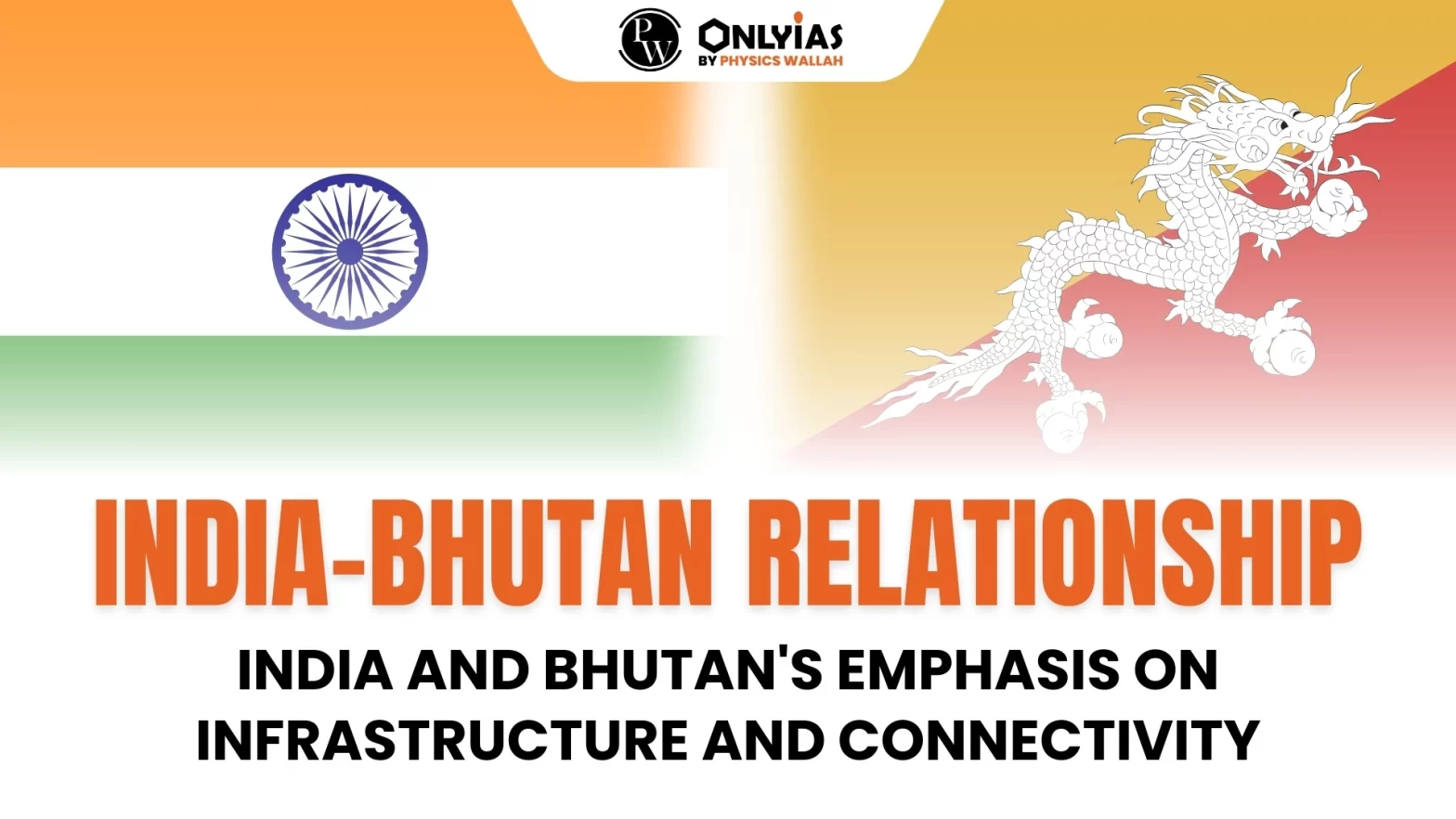Context:
| Relevancy for Prelims: India-Bhutan Relationship and Rail Connectivity links.
Relevancy for Mains: India-Bhutan Relations and Significance of Infrastructure and Connectivity in Bilateral Relations. |
Strengthening India-Bhutan Relationship: India and Bhutan’s Emphasis on Infrastructure and Connectivity
- India and Bhutan emphasize the importance of infrastructure and connectivity in talks between the Indian Prime Minister and Bhutan’s fifth King.
- Rail Links: Surveys for the Kokrajhar-Gelephu rail link connecting Bhutan to Assam were discussed, signaling a push for enhanced connectivity.
- Prospective Rail Link to West Bengal: Discussions initiated for a Bhutan to West Bengal rail link, enhancing regional transportation networks.
- Facilitating Bhutan-Bangladesh Trade: Plans to develop a rail link to facilitate Bhutan-Bangladesh trade and upgrade checkpoints along the India-Bhutan border.
Need for Economic Diversification for Bhutan
- Impact on Traditional Sources: Bhutan’s economy traditionally relies on hydropower and tourism, which have been adversely impacted by the COVID-19 pandemic and global warming concerns.
- Proposed Measures: To diversify the economy, the following measures are proposed:
- Special Economic Zone (SEZ): Proposal to build an SEZ at Bhutan’s southern border with Assam to attract investments and foster economic growth.
- Airport Development at Gelephu: Plans for an airport at Gelephu to boost connectivity and attract international investments.
India and Bhutan Working Together for Regional Growth
- Bhutan has been actively engaging in regional cooperation to foster economic growth.
- Recently taken Initiatives:
- Preferential Trade Agreement with Bangladesh: Bhutan signed a Preferential Trade Agreement with Bangladesh in 2020, strengthening economic ties and opening new markets for Bhutanese exports.
- India’s Energy Exchange: Intra-regional growth facilitated by India’s energy exchange, linking Bhutanese and Nepali hydropower suppliers and expanding to Bangladesh and Sri Lanka.
What Is the Strategic Importance of Bhutan Amidst Geopolitical Challenges?
- Amidst geopolitical challenges, Bhutan’s strategic importance becomes evident. Key considerations include:
- Cohesive Regional Groupings: Geopolitical conflicts and anti-globalization trends necessitate cohesive regional groupings for sustained growth, taking inspiration from successful models such as the European Union.
- Security Concerns: India’s concerns over China’s influence in South Asian trade and strategic ties, including boundary issues with Bhutan and the Siliguri Corridor.
Need for Collaboration: Bhutan faces challenges with Pakistan and Myanmar sanctions, emphasizing the need for collaboration with neighboring countries.
- Issues with Pakistan and Sanctions: Challenges with Pakistan and Myanmar sanctions necessitate alternative trade routes and closer collaboration with neighboring countries.
- Engaging Development Partners: Drawing the World Bank and donor countries like Japan into the creation of a sub-regional hub to enhance resources and expertise for sustainable infrastructure projects.
Conclusion:
It’s a good step to agree on new initiatives with neighbors and the World to bolster collaboration in trade, technology, and cross-border connectivity. But India also has to focus on its efficient and time-bound execution to achieve long-term success.
![]() 8 Nov 2023
8 Nov 2023

